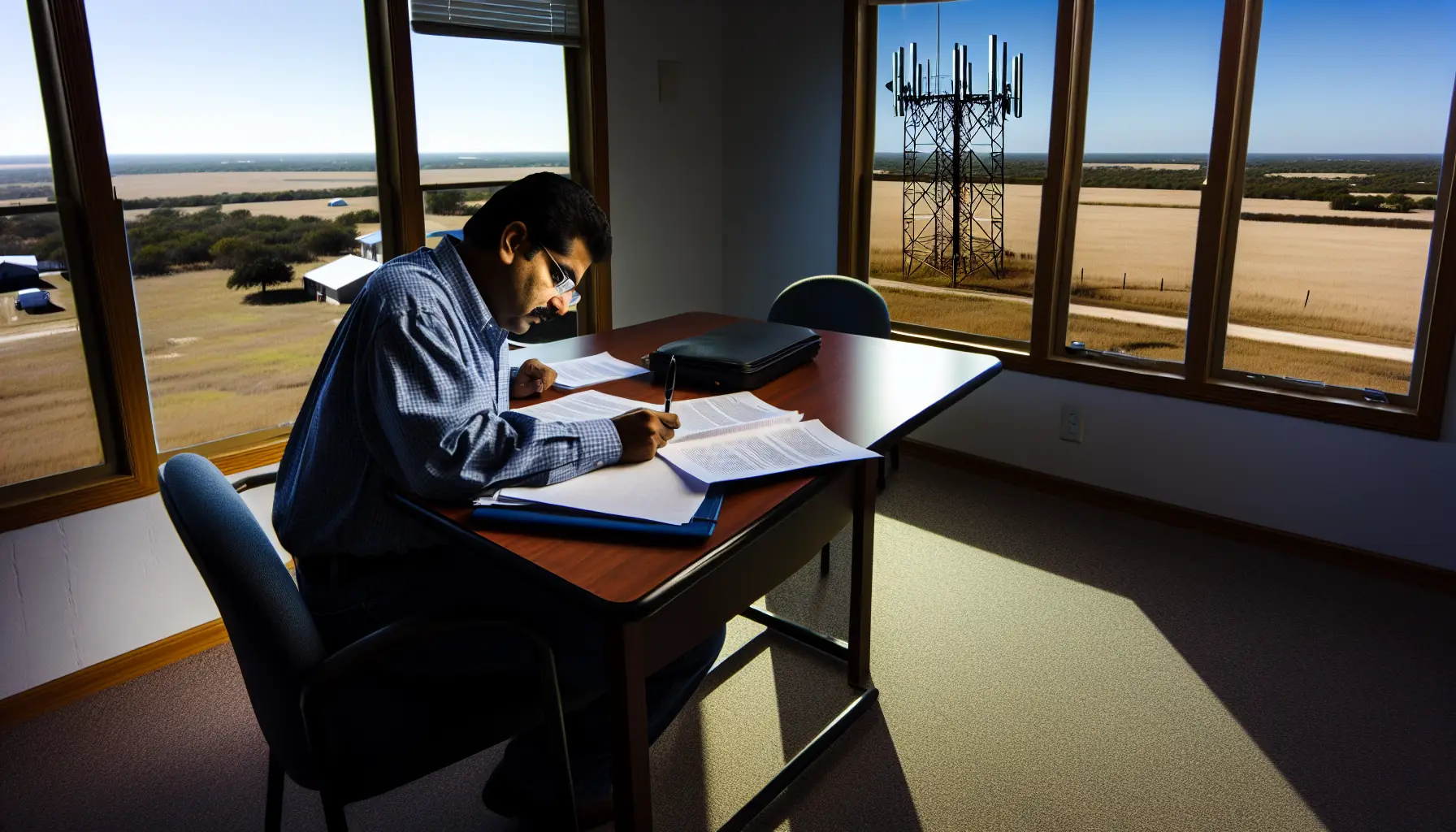Selling land to developers in Texas can be a rewarding opportunity. When land is located in a growing area, its value increases. Developers often look for land to build homes, stores, or offices. But making a profit requires more than just putting the land on the market. It is important to understand what buyers look for before putting up a land sale sign in the yard.
In This Article:
Understand the Texas Land Market
Watch Regional Growth Patterns
Texas cities like Dallas, Austin, and Houston keep growing. More people means more houses, roads, and businesses. Areas outside these cities are also becoming popular. Developers want to buy land before it becomes expensive. Knowing where roads and schools are being built helps spot valuable land early.
These trends help landowners know when and where to sell. If your land is near new development, that makes it more attractive. Keep track of local news and city planning websites. This way, you can stay ahead of land market changes. It becomes easier to set the right price based on location.
What Developers Are Looking For
Developers want land that fits their building needs. Flat land is easier to build on. A property with mineral rights or road access increases value. They also want land near power lines, water pipes, and public roads. If your land meets these needs, it becomes desirable fast.
Zoning laws matter too. If the land is already zoned for commercial use, that helps. The fewer legal changes needed, the faster a developer can build. Highlight these benefits when sharing land details. Make a list of what your land has to make it easier for buyers to decide.
Prepare Land Before Selling
Clean Title and Records
Before listing your property, check for title issues. A clean title means you fully own the land and can sell it without delays. If there are liens or co-ownership prhttps://daughtreylaw.com/2024/11/15/resolve-texas-mineral-title-issues-essential-insights/oblems, fix them first. This step is critical because developers do not want legal surprises. Title issues can block or delay payment.
Also review your deed and related documents. Make sure names, boundaries, and property details are correct. If you inherited the land, confirm probate is complete. A Texas lawyer familiar with land sales can help review records. Though not always needed, legal help can reduce costly mistakes.
Check Environmental and Zoning Rules
Texas has rules about how land can be used. Land used for farming may have limits that affect its sale or new plans. The same goes for land near lakes or wetlands. Developers might need environmental permits before building. If you already followed the rules, that is a plus.
You should also know your property’s zoning. Zoning laws describe what kind of buildings can go on the land. For example, land zoned for housing cannot be used for factories. If needed, you can ask the city if the zoning can be changed. That step is often easier if the developer already has a plan in mind.
Highlight Infrastructure Readiness
Utility access is a big factor for developers. If water, sewer, electricity, or fiber optic cables are already nearby, your land has a higher value. Make a list of all utilities that connect to or pass near your land.
Road access is also important. Developers want land that trucks and construction workers can get to easily. Land near a highway or wide paved road is valuable. If entry to your property is easy and safe, it gives you an edge in the market.
Know the Value of Your Land
Research the Local Market
Look around your area and see what similar plots have sold for. You can check county records or talk to a local real estate agent. Knowing what others got for their land helps you avoid poor pricing. It also shows if demand is going up or down.
Prices can change quickly based on new roads, factory plans, or housing needs. Watch those changes closely. A land sale in a hot area can bring unexpected profits. On the other hand, pricing too high or too low hurts your bottom line.
Get a Professional Appraisal
A certified appraiser can give you a full report of your land’s value. This report helps support your asking price. It includes size, location, road access, title status, and other key factors. A full appraisal helps a buyer feel confident during the deal.
Even if you already have a price in mind, an appraisal can confirm if it is fair. It can also help uncover issues early. For example, if the appraisal notes a zoning issue, you can fix it before the buyer walks away. Avoiding delays makes the sale process smoother for everyone.
Understand Legal Rules Related to Land
Mineral Rights and Easements
In Texas, owning land does not always mean owning what is underneath it. Someone else might own the mineral rights. That means they can drill for oil or gas even if you sell the surface. If you know who owns the mineral rights, tell the buyer early.
Some properties also have easements. These give others a right to use parts of your land. Utility companies often have easements to run wires or water lines. Easements affect how developers use the land. Knowing these details helps avoid confusion during the sale.
Deed Restrictions and Probate Questions
Some land has use limits placed by the original owner. These are listed in the deed. For example, the deed might say no businesses can operate on the land. These rules can lower the land’s resale value or limit building plans.
If the land was inherited, you must check if probate is finished. Probate is the legal process to transfer ownership. If that is not done, the sale could be delayed. Learning about these legal pieces helps prepare for a smoother deal.
How to Market to Developers
Use the Right Marketing Channels
Regular home listing websites might not reach developers. Use channels that focus on commercial buyers. Many developers search industry-specific websites or work with land brokers. Your listing will do better if seen by the right people.
You can also list land on local builder forums, real estate meetups, or Texas land investment groups. Posting where developers hang out increases your chances. Focus on what makes your land ideal for big projects when creating the ad.
Show Off the Land With Images and Maps
Drone photos and videos give buyers a great view of your land. They can see roads, trees, slopes, and nearby buildings. Maps that show zoning, utility lines, and lot size are also helpful. These visuals make decisions easier for buyers.
If you have access to your County GIS website, it may also list maps for free. Good images help save time by showing buyers what to expect before they visit. Developers will appreciate clear presentations and less mystery around the land.
Use Smart Selling Techniques
Know Your Bottom Line
Decide before you talk to buyers how low you are willing to go. Also figure out what terms you must have. For example, maybe you want a fast close or a large deposit. Knowing this helps you stay calm during offers or counteroffers.
It also shows you are prepared and know your land’s value. That confidence goes a long way in negotiations. Standing firm but polite helps make deals go more smoothly.
Be Clear and Cooperative
Developers often ask many questions. They want property records, past tax bills, and detail on road access. Try to answer clearly and quickly. Good communication builds trust and keeps deals moving.
Be honest about what you know. If you are unsure about a zoning law, say so. Developers do not expect you to know everything, but honesty improves your chances. Cooperation is key from first talk to final paperwork signing.
Pay Attention to Taxes
Capital Gains and Planning
When you sell land for more than you paid, you may owe capital gains tax. This is a tax on the profit made from a sale. The longer you owned the land, the lower the rate might be. Understanding this helps you set aside money for taxes.
There are ways to reduce or defer taxes. One way is through a 1031 exchange, which lets you trade one property for another. But you must follow IRS rules exactly. Talking to a tax expert before selling can help you save money long-term.
Explore Different Sale Options
Offer Seller Financing
Seller financing can attract buyers who do not qualify for a bank loan. In this deal, you let the buyer pay you over time. You set the terms like interest rate and payment schedule. This gives you monthly income instead of a lump sum.
This method can also lead to higher offers. Developers sometimes pay more if they do not need to deal with banks. But make sure the deal is set up professionally to avoid risk. Clear contracts and payment tracking protect both sides.
Common Problems to Avoid
Ignoring Legal and Title Steps
Some sellers skip checking the title or zoning laws. This mistake causes delays during closing. If a buyer finds problems later, they may ask for a lower price or back out. Fixing these issues early saves time and money.
Also, make sure all owners of the land agree to sell. Shared land must have all names on the sale contract. These may seem like small steps, but they impact your timeline and profits. Taking care of legal details early builds a smooth path to closing.
Poor Pricing Practices
Asking too much can scare away buyers. Asking too little leaves money on the table. Use local data and appraisals to price smart. Look at land near yours and compare prices per acre or square foot. If you are unsure, consult a real estate expert in land sales—not houses.
A good price helps your listing get attention fast. If a developer sees your land as a fair deal, they may act quicker. Lowering the price later often signals a problem. Starting with the right number avoids these traps.
Closing the Land Sale
What to Expect After Agreement
Once the price is agreed on, most buyers will inspect the land. They check the title, permits, and physical features. They might also ask a surveyor to visit. This process usually takes a few weeks. Any issues found will be discussed before moving forward.
Be available to answer questions or fix paperwork fast. If delays happen, stay calm and work through them. After the buyer is satisfied, you set a date to close the deal. Sign the documents, transfer the title, and receive payment at this stage.
Final Title Transfer
The county clerk’s office handles recording the sale. This makes the deal public and shows the buyer now owns the land. You will need a clear deed and description of the land. A notary will check signatures and witness the signing.
After the process is complete, you should receive a closing statement. This shows what you were paid and lists all costs. Taxes, record fees, and title insurance may be included. Make sure it matches your expectations before leaving the office.
Conclusion
Selling land to developers in Texas can lead to big returns. But it takes planning, knowledge, and a little patience. From understanding zoning laws to checking title issues, each step brings you closer to a good deal. Texas mineral rights, access to roads, and land use details all matter when pricing your property.
If you want trusted guidance on selling land, mineral rights, and zoning issues, the real estate and oil lawyer team at Daughtrey Law Firm can help. Their experience in texas mineral rights legal help and houston real estate attorney services makes a difference when managing complex sales.












